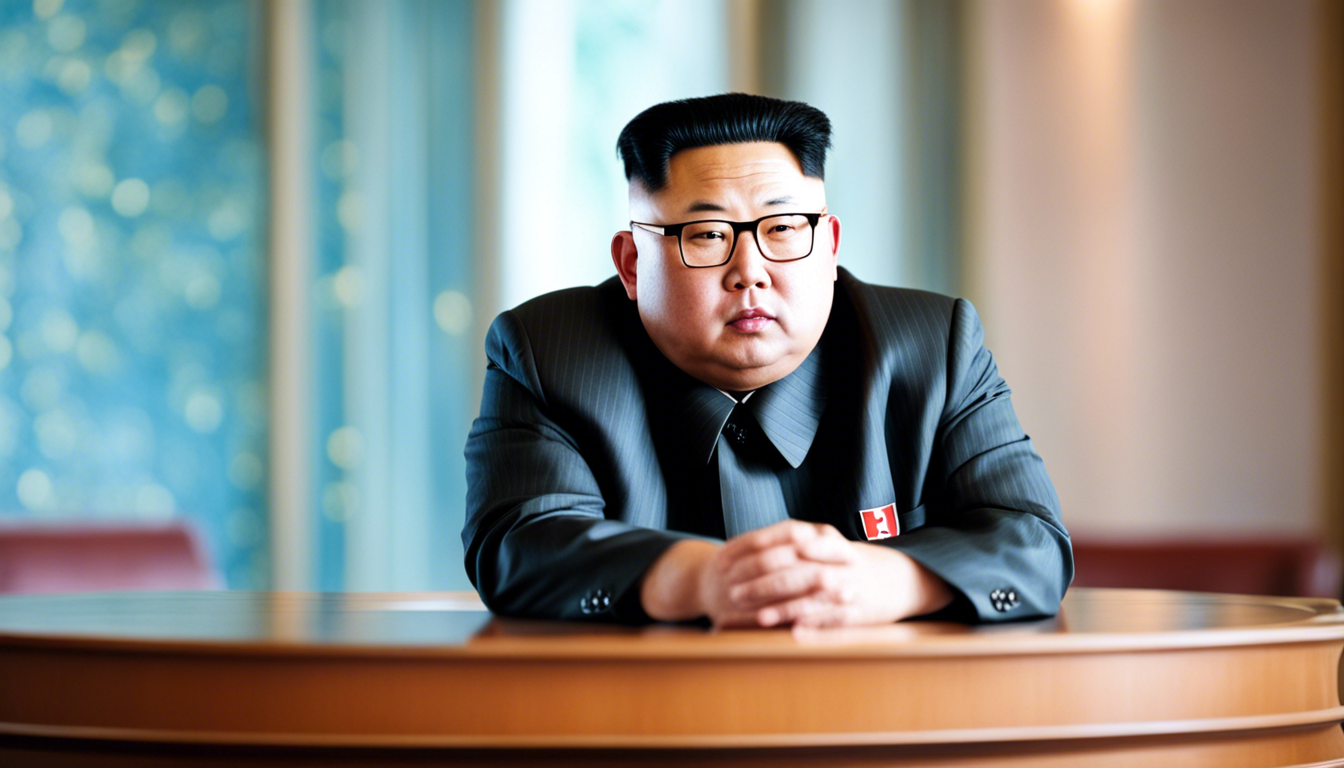
Kim Jong Uns Departure from Decades of North Korean Policy: A Sign of Impending War?

The global security landscape is facing tumultuous times with ongoing conflicts in Ukraine, Gaza, and the broader Middle East. In the midst of these crises, North Korea's latest provocations under the leadership of Kim Jong Un have triggered apprehension about the regime's military intentions. As the country's nuclear capabilities continue to evolve, its aggressive policy shift towards South Korea and the United States is drawing international concern and debate among security experts.
Kim Jong Un's bold declarations
In recent weeks, Kim Jong Un has abandoned North Korea's longstanding policy of seeking reconciliation and reunification with South Korea, instead classifying the South as their "permanent enemy." Kim's rhetoric, as reported by state outlet KCNA, has escalated tensions by declaring that North Korea "does not want war, but will not avoid it," and outlining the country's goal to "occupy, suppress, and reclaim" South Korea. Moreover, the regime has conducted a series of weapons tests and called for accelerated war preparations in response to perceived "confrontation moves" by the US.
Uncertainty and speculation
The sweeping policy shift and aggressive posturing by North Korea have left seasoned security observers contemplating the leader's true intentions. While some experts argue that Kim has made a strategic decision to go to war, others believe that such a move could precipitate the downfall of his regime. Despite conflicting views, there is consensus on the heightened risk of military engagement on the Korean Peninsula, with the remote possibility of nuclear conflict.
Heightened International Concern
The situation has been described as entering a critical phase, with the potential for accidental conflict due to misunderstandings and misperceptions. Kim's increasing concerns about South Korea and the United States' joint military drills and strengthened deterrence plans have been cited as key drivers behind the regime's aggressive posturing. The international community is deeply apprehensive about the implications of North Korea's escalated hostilities and the potential for it to spiral into a full-blown military confrontation.
Geo-Political calculations
North Korea's policy shift also appears to be influenced by a reassessment of its stance towards South Korea and the US, driven by the changing geo-political climate and a desire to bolster strategic alliances. Additionally, Kim is closely monitoring the developments in the US as President Joe Biden manages multiple global crises, with potential implications for North Korea's future interactions with its adversaries.
Strategic implications
The reclassification of South Korea as an enemy state has strategic implications for North Korea, providing justification for the continued build-up of its nuclear and missile arsenal. Kim's assertions about the primary purpose of the nuclear arsenal being to deter war while emphasizing the potential use of nuclear weapons to safeguard the North's "fundamental interests" have further raised international concerns. This shift in policy and rhetoric signals a departure from the previous approach and underscores the evolving dynamics in the region.
International response and concerns
The international response to North Korea's heightened belligerence remains a matter of intense debate. While some advocate for a show of strength as the best deterrence, others emphasize the need to minimize potential threats to North Korea to prevent further escalation. The delicate balance in dealing with North Korea's provocations underscores the complexity of the situation and the potential implications for regional stability.
Unpredictable future
Looking ahead, the international community remains wary of North Korea's continued ratcheting up of tensions and its potential to impact global dynamics. The upcoming US presidential elections add another layer of uncertainty, with the possibility that a change in leadership could significantly alter the dynamics of engagement with North Korea. As the situation continues to evolve, the world watches closely, cognizant of the unpredictable nature of North Korea's actions and their potential repercussions.
Emboldened by Shifting Global Dynamics
Kim Jong Un's confidence in the shifting global landscape, with a weakened US influence and a fragmented world order, has emboldened the regime to pursue a more aggressive foreign policy. The regime's pivot towards closer ties with China and Russia, along with its engagement with other actors in the global arena, reflects a broader reorientation in North Korea's foreign policy. The implications of these strategic realignments on regional and global security remain a subject of intense scrutiny and concern for the international community.
Potential scenarios
As tensions continue to mount, the potential scenarios for North Korea's future actions remain the subject of speculation. The regime's response to joint military exercises and its stance in the face of ongoing global crises will shape the trajectory of events in the coming months. The delicate balance of deterrence and engagement with North Korea will require careful navigation to prevent further escalation and maintain regional stability.
Share news















